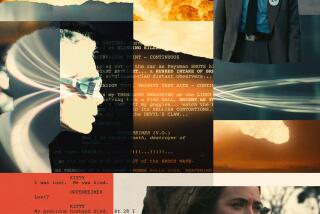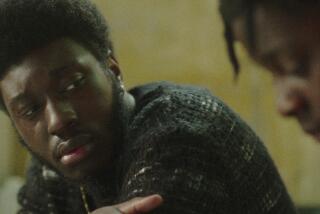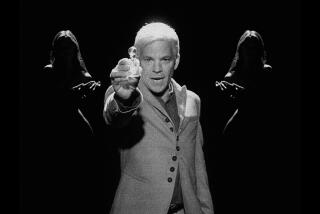The Directors: Andrew Niccol of ‘In Time’
Take a glance at Andrew Niccol’s body of work, and it becomes apparent that the filmmaker is interested in exploring otherworldly realities.
The first movie he wrote and directed, 1997’s “Gattaca,” presented a society in which children are born with only their parents’ strongest hereditary traits — creating an environment in which people are judged by their gene pools. A few years later, he made “S1m0ne,” a 2002 film about a computer-generated woman who becomes a famous actress.
Now comes “In Time,” the director’s latest project with fantastical themes. The movie, out on Oct. 28, is set in a world where everyone’s biological clock stops at age 25. Here, time is the currency — the wealthy can live infinitely, while the poor must work for — or steal — enough minutes just to survive the day.
But Niccol, 47, insists he isn’t as transfixed by science fiction as his resume might suggest.
“I never knew I was actually making science fiction, because it was always social science fiction. I was never so interested in the hardware. I was more interested in the humanity,” he said recently via telephone amid cutting the final version of “In Time.” “This story, most of all, is really about living in the present — the technology has just made the consequences even greater because you have a ticking clock that reminds you every moment of your mortality.”
Still, the filmmaker acknowledges that he often likes to explore similar themes. He even refers to “In Time” — which stars Justin Timberlake as a poverty-stricken man wrongly accused of murder — as “‘Gattaca’ revisited.”
“Genetic engineering has gotten better — or worse, depending on your point of view — and I always knew back then that the Holy Grail for genetics was discovering the aging gene,” he said.
But given the opportunity, Niccol, who has clearly spent much time thinking about his own mortality, said he wouldn’t choose to live forever.
“I’ve always felt that even if you could switch off the aging gene, I’m not sure our psychology could keep up with our biology,” he said. “In the film, none of them have the luxury of dementia. Their mind is still fresh, so you remember all the crappy things you’ve done in your life. There’s a reason I chose the age of 25 in the movie: The frontal lobe that controls impulse and recklessness doesn’t fully develop until then. That’s why most rental cars won’t rent you a car until you’re 25. If I’d known that sooner, I could have blamed all of the crazy [stuff] I did on my youth.”
More to Read
The biggest entertainment stories
Get our big stories about Hollywood, film, television, music, arts, culture and more right in your inbox as soon as they publish.
You may occasionally receive promotional content from the Los Angeles Times.







